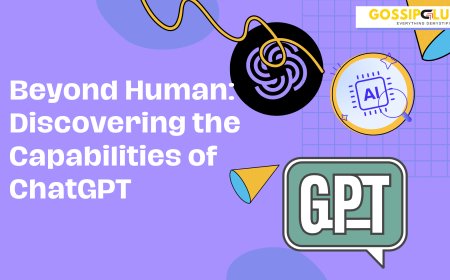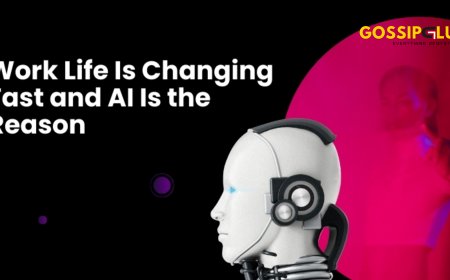AI in Healthcare: Transforming Diagnosis and Treatment
Discover how AI is revolutionizing healthcare, from faster diagnoses to personalized treatments, reshaping the future of patient care and medicine.

By 2025, artificial intelligence (AI) technologies will initiate a revolution in global healthcare. Adoption of AI technology is rapidly changing healthcare systems in diagnostics, medicine, patient service, and hospital administration.
This article goes in-depth to explore how AI is changing healthcare in 2025, why AI is doing so, and how it achieves it, backed by real-life examples, current technological innovations, and intelligent systems’ evolution.
Revolutionizing Diagnostics with AI
A major way AI is making a contrast in healthcare is with respect to its part in diagnostics. Today’s AI apparatuses in healthcare give exceptional accuracy – by 2025 AI in correct location of cancer, diabetes and cardiovascular afflictions are exceedingly precise. The power of advanced analytics in combination with machine learning can examine detailed scans from MRIs and CT scans and X-rays see subtle patterns, which may not be noticed visually.
Google’s Deep Mind to illustrate, has engineered an AI algorithm that detects more than 50 eye diseases with precision of 94 percent. Diagnosis utilizing AI eases disease detection and increases precision to the point of rapid better outcomes for patients.
Personalized Medicine through AI Algorithms
In one of the most striking ways AI has changed healthcare, personalized medicine has come into its own. AI technology takes genetic data, patient lifestyles, and holistic information of the clinical field to develop unique medical plans for each of the patients. Large scale implementation of advanced AI systems in the year 2025 is aimed at predicting a patient’s response to specific drugs, thereby reducing adverse affects caused.
Through adoption of AI into personalized medicine, healthcare providers are able to deliver higher patient results at a more effective use of resources.
Enhancing Remote Patient Monitoring
The COVID-19 pandemic elevated the integration of remote healthcare; AI in healthcare was fundamental for enabling its success. By 2025, AI-enabled smart watches and biosensors will be on top to allow for round the clock monitoring of patients with hypertension, diabetes and asthma, among others, who live with chronic conditions.
These tools collect up to date information and analyze the same using AI, which will raise a potential abnormality or warning signs. Instant notifications mean that the caregivers will be able to take appropriate corrective actions quickly in case of the need to do so.
With the help of AI in remote health monitoring, this preventative strategy is lowering readmissions to hospitals and improving the daily lives of millions, by relaying data in real time.
Streamlining Hospital Operations
Balancing a massive patient load with a high level of administrative duties as well as logistical issues is a constant problem of healthcare facilities. Hospital operations across the board are radically changing with the use of AI by 2025.
The use of automated AI scheduling greatly enhances medical staff and resource use to allow optimal availability and use by doctors and operating rooms. Adoption of RPA in billing, insurance, and data management is reducing administrative workload and therefore increasing staff efficiency. Bringing in AI into operational workflow has helped hospitals reduce costs, increase staff productivity and increase the level of patient satisfaction.
Virtual Health Assistants and Chat bots
By 2025, AI has pushed virtual assistants and catboats to the center of efforts to achieve better relationships between healthcare providers and patients. Around the clock, these systems can answer medical questions, make appointments, and warn the patients about their medications. Babylon Health, for instance, uses its AI Chabot that gives quick symptom evaluation and recommends what the next step should be in a few minutes.
Such systems alleviate the pressure on call centers and the primary care providers for better access to medical care. American Institute-driven virtual health assistants are of help in increasing patient satisfaction and empowering the patients to take hold of their well-being.
AI in Robotic Surgery
AI facilitates the latest robotic surgeries, which makes the surgical poles much more acute. By 2025, robotic tools driven by AI powers allow surgeons to make minimally invasive surgeries with unbelievable millimeter accuracy. Based on the input from thousands of surgeries, these systems give surgeons live recommendations. Application of AI in robotic surgery is reducing recovery times and hospital stays that will give patients superior results.
Mental Health Support through AI
With the understanding that mental health is a reality, AI-based systems in healthcare are trying to address the untreated gap. By 2025, these chat applications used in digital platforms like Webfoot and Wyse offer CBT, monitor moods and help one get through life by emotional support using artificial intelligence.
With the help of analysis and interpretation of language, these applications bring empathetic feedback to users. The capability of the AI platform to provide care anonymously and conveniently while having mental health helps users focus on and achieve emotional well-being.
Ethical Challenges and Future Outlook
Future of AI applications in medicine is promising, but such aspects of use as user privacy, biases in algorithms and an informed consent provoke ethical debates. International standards are being developed by 2025 to monitor and control the safe use of artificial intelligence in medical settings.
The healthcare workers are being trained to act with AI, giving special attention to encouraging transparency and understandability in these systems. In the years to come, as humans and AI operate in healthcare, all aspects of medicine are likely to change, whereby there will be greater efficiency and inclusiveness and individualization in treatment.
Final Thoughts
In general, AI within healthcare is actively present within the continuum of healthcare in 2025, transforming how medical services will be practiced. From the spectrum — from disease detection to clinical management, to surgical interventions, to communicating with patients – AI’s tentacles penetrate deeply into the very fabric of medical care.
With AI increasingly advancing while being applied being applied intelligently and responsibly, it will be more appreciated and useful in healthcare to make it a smarter, secure and adaptive healthcare network.
What's Your Reaction?
 Like
0
Like
0
 Dislike
0
Dislike
0
 Love
0
Love
0
 Funny
0
Funny
0
 Angry
0
Angry
0
 Sad
0
Sad
0
 Wow
0
Wow
0



































